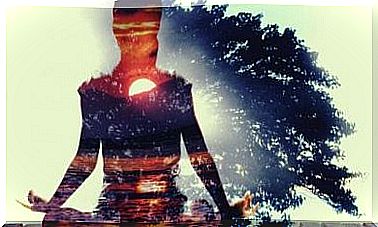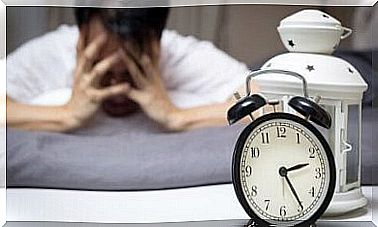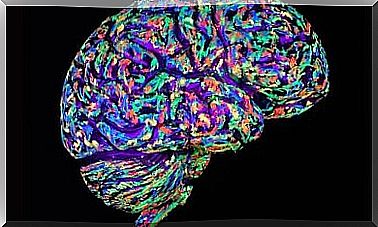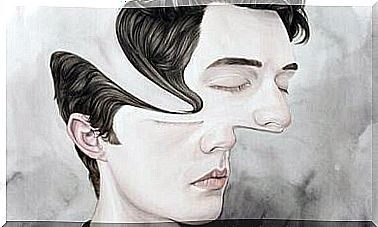The Mystery Of Dreams
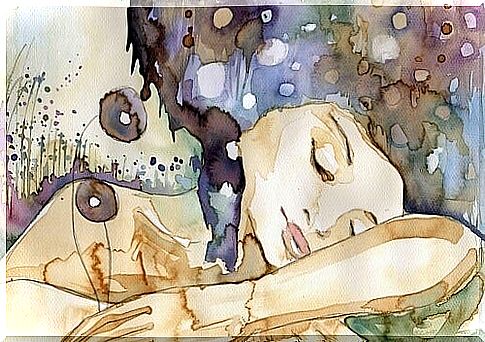
Some choose not to pay attention to their dreams, while others think a lot about them. And some people think that dreams are the desperate cry for the things we do not say when we are awake. There are many different theories and research studies on dreams, and many hypotheses about what happens in the mind while we sleep.
Why do we dream? What do dreams mean? Where do the images that come to our minds come from? How are nightmares formed? The answers are not simple at all, and many questions are still unanswered. Those who are, we will discuss in this article.
Dreams: more than just REM
We are not going to talk about the stages of sleep, or even the stages of REM that we go through when we close our eyes at night. But we will talk about what happens in the mind in relation to the images that are shown, often without meaning or explanation.
Some studies suggest that everything we do during the day accumulates in a specific area of the brain, and when we sleep, they are “brought to light” again, but in a mixed, symbolic and incoherent way. These can include a newspaper you read, a movie you saw, or a building that caught your attention while you were at work, etc.

Images, sounds, memories and experiences come together to create dreams, as a summary of everything that happened that day. But of course it is not just composed of such current elements. They are often combined with the echoes of the past, things that happened a while ago or people you remember.
The experience of dreaming
Everyone dreams, even if we do not remember it. Even if we try to tell a dream or write it in a journal, we often lack most of the pieces we need to put together a puzzle that has any meaning or that we can search for in daily life. No one can ever describe it in detail. Even if you remember some parts vividly, there are still many parts you can not remember.
According to Allan Hobson, when you dream, the mental activity that occurs is very similar to the activity that happens if you actually did the action, although there are certain elements that are impossible when you are awake (such as seeing a family member who has passed away, fly like a bird, or to see yourself as a child).
When you dream, it is not only the brain that jumps into action, but also emotions and even muscles. Fear, happiness and insecurity take over. You may wake up with your heart beating very fast, bathing in sweat or shortness of breath. But most of the time, dreams happen without rhythm or reason, and they disappear quickly when you open your eyes or hear the sound that wakes you up.
Why? It all depends on various factors. First, it depends on the level of sleep you are in. If you are in REM, the images and experiences are clearer, more comprehensive and more perceptual. You may not be able to separate dream from reality. If you are in an nREM stage, there will be smaller pictures, and more scenes that are typical of daily life (at work, cooking, in the park, etc.).
What is the function of dreams?
The main goal of sleep is to restore the organism to optimal physiological conditions. But when it comes to psychology, it often involves a lot of emotional content that should not be ignored.
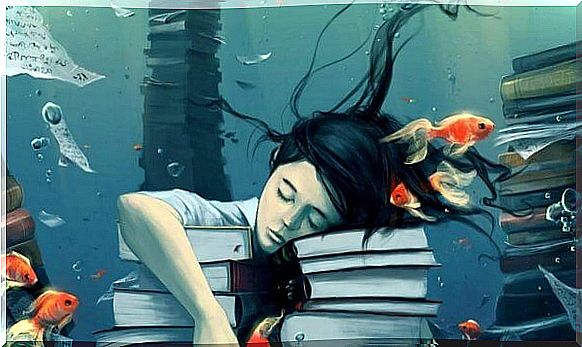
Studies have shown that dreams consolidate memories and help to effectively restore memories. Some theories also say that dreams give the brain the stimulation it needs to wake up from a deep sleep and activate the brain circuits associated with emotions.
Theories of dreams
Sigmund Freud was convinced that dreams hidden repressed desires. He always used to say “there is a lot of water flowing under the bridge.” New theories have emerged in the 20th century that either confirm or disprove his hypothesis.
One of these theories is that of Harvard psychologist Deirdre Barret, who said that dreams serve to solve problems while we sleep. This means that humans have evolved to the point where we can solve problems, even when we dream. How nice it would be if it happened all the time!
Dreams are quite visual, but not usually very logical. So in order for them to help us solve problems, we need to analyze them further. That’s all right, but you have to keep in mind that we only remember parts of them. According to this theory, the dream is another way of thinking, and it can help us create a “plan B” for our problems.
On the other hand, psychiatrist Jie Zhang suggested another idea about dreams and their functions. According to him, the brain stores memories all the time, whether we are asleep or awake.
This means that dreams are the same as the thoughts or memories that come to our mind when we are awake. Think about it, have you ever been surprised by what you daydream about? Something similar happens when you sleep, only in this case it may involve unconscious activity that you can not control.


